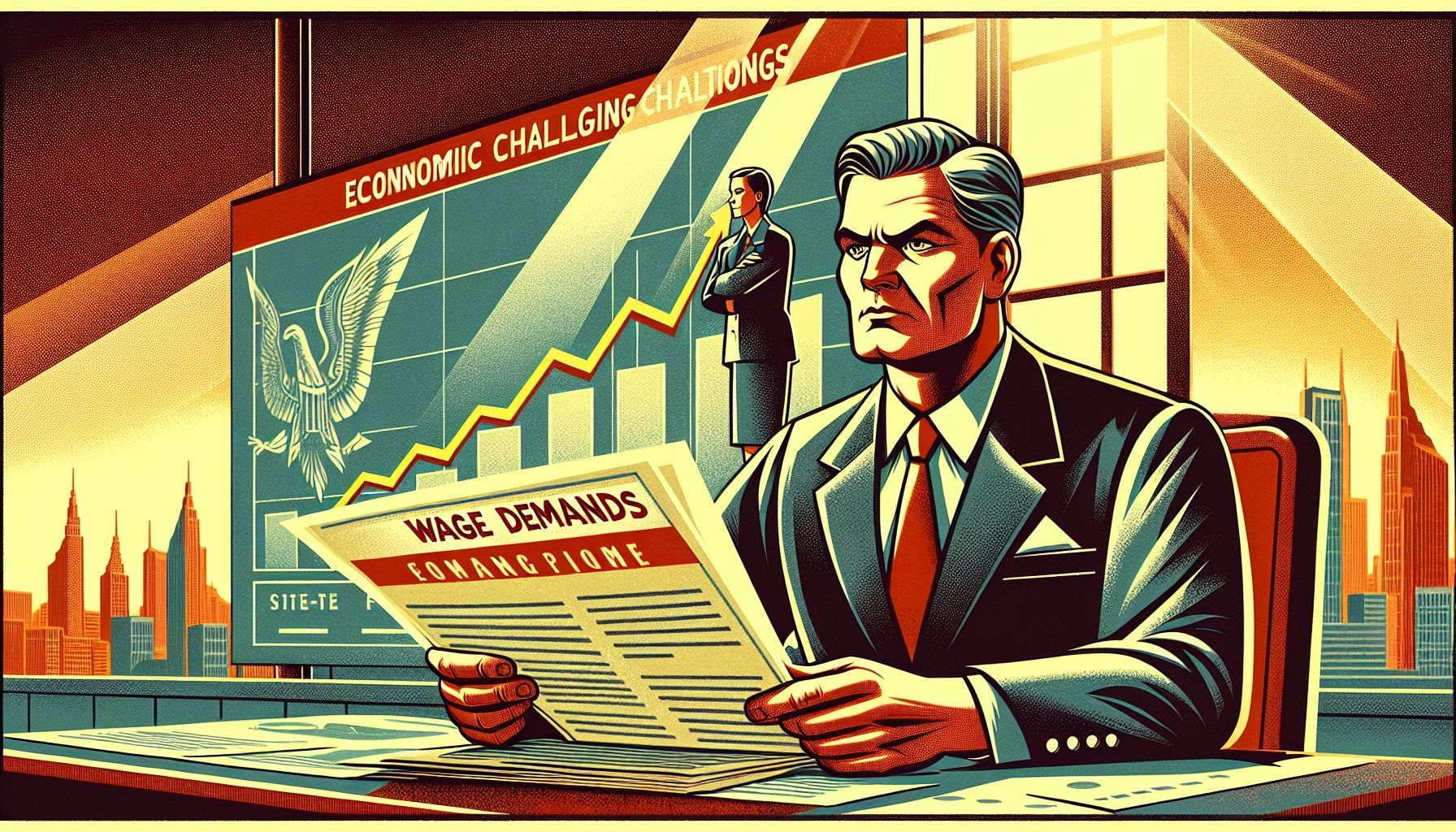Dutch Central Bank Chief Questions Union's Wage Demands Amid Economic Challenges

Netherlands, Thursday, 17 October 2024.
Klaas Knot, president of the Dutch Central Bank, criticizes FNV union’s 7% wage increase demand, warning it could fuel inflation. This comes as companies like Picnic report significant losses, highlighting the delicate balance between worker compensation and economic stability.
Economic Concerns Amid Wage Demands
As the FNV union pushes for a 7% wage increase alongside a reduction in the workweek to 32 hours, Klaas Knot, the president of De Nederlandsche Bank (DNB), voices concerns over potential inflationary pressures. This demand arises at a time when the Netherlands is experiencing rising inflation, contrasting with the European Union’s broader trend of declining inflation toward a 2% target. Knot’s critique underscores the tension between labor demands and macroeconomic stability, particularly in the current economic climate where companies face financial strains[1].
Corporate Losses Highlight Financial Strains
The financial landscape in the Netherlands is underscored by recent reports from companies like Picnic, which recorded a net loss of €78 million in 2023. Despite delivering €796 million in groceries, Picnic’s financial results show a continued struggle, albeit with a reduced loss from €104 million in the previous year. The company’s strategic investments in distribution centers signal a focus on long-term profitability, projected to materialize in 2024. According to Picnics’s CEO Michiel Muller, the company remains optimistic about achieving profitability[1].
Global and Domestic Corporate Adjustments
Other corporations are also making significant adjustments in response to economic pressures. AkzoNobel plans to cut 2,000 jobs globally as part of an effort to enhance efficiency and cut labor costs, affecting a portion of its 30,000-strong workforce, including 2,500 employees in the Netherlands. In contrast, the renewable energy sector sees positive developments as Eneco signs a 15-year agreement with LyondellBasell to supply wind energy from the forthcoming Ecowende wind farm, starting in 2027. This aligns with LyondellBasell’s goal to source at least half of its energy needs from sustainable sources by 2030[1].
Implications for Economic Policy
The contrasting developments in various sectors highlight the complexity of the economic environment in the Netherlands. While companies like Picnic face financial difficulties, others like Eneco are making strides toward sustainability. Klaas Knot’s warnings reflect the challenges policymakers face in balancing wage growth with inflation control. As the Dutch economy navigates these pressures, the outcomes of corporate strategies and union negotiations will play a crucial role in shaping the country’s economic trajectory in the coming years[1].

